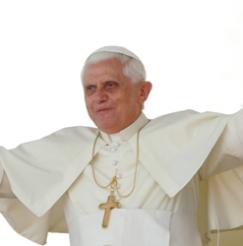Catholic Care's trustees would be breaking the law if they did not spend donations on activities that advance the Catholic faith, says Hal Broadbent.
The beauty of the charity sector in England and Wales is its diversity and independence. The vehicle of the charitable trust provides a legal structure to discipline and co-ordinate charismatic initiatives to meet unrequited needs, whether these be the education, spiritual and welfare needs of humans, the various needs of animals, the preservation of ancient monuments etc etc.
Independent schools (Harrow and Eton), religious organisations (Islamic mosques and Catholic congregations) medical welfare agencies (Macmillan Cancer Support and Crusaid), animal care bodies (Save the Rhino, Cats Protection and the Donkey Sanctuary), heritage protection organisations (the National Trust and the Society for the Protection of Ancient Buildings) are just some of the many bodies that go to make up the rich diversity of the charity sector.
More often than not these initiatives are required because the state (public sector) is insufficiently resourced, humanely and financially, to meet the demands placed upon it. The general public voluntarily donate from their taxed earnings to fund these non-government responses to need. They have confidence to do so because the provisions of Trust law ensure that their funds are applied exclusively for the purposes that the donor determines and prescribes. If I donate £1 to the Cats Protection League I expect it to be spent on activities that protect cats and not save rhinos or provide sanctuaries for donkeys. Likewise, if I donate £1 for cancer research I do not expect it to be spent on research into finding a cure for Aids.
When someone donates to a Catholic charity they legitimately expect their donation to resource activities that advance the Catholic faith. Trustees are bound under the strict requirements of trust law to ensure that this is the case. Currently, the Catholic Church does not sanction, through its public ceremonies and rituals, same-sex unions and marriages. Complex theological arguments are advanced to justify its position. Statutory authorities may take a different view on same-sex relationships and the suitability of these for structuring an environment within which an adopted child can learn, develop and grow to adult maturity. They are entitled to their point of view just as Catholics are to theirs.
However, they have no legal powers to override the long-standing principles of trust law that exist to ensure donors’ intentions are protected and honoured. To claim otherwise would be to dismantle four centuries of carefully crafted legislation and in the process to destroy donors’ trust and confidence in the capabilities of trustees to programme and oversee charitable activities that advance their declared objects.
The High Court’s ruling compelling the Charity Commission to review its decision to coerce Catholic Care (Diocese of Leeds) to place adoptees with gay couples has nothing to do with allowing the charity to "blackmail the law into accommodating [its] bigotry" as Daniel Phelan stated in his editorial in Charity Finance this month, and everything to do with protecting public trust and confidence in charities to do the things they are legally constituted to do.
To insist that the trustees of Catholic Care spend donations made expressly for activities to advance the Catholic faith instead on activities that advance a liberal secular agenda represents a significant breach of trust. It is like grabbing a pound given for the protection of cats and forcefully applying it instead for the preservation of an ancient and historic monument.
Trust law absolutely forbids such a misapplication of funds. It is ironic that a public body like the Charity Commission, priding itself on protecting public trust and confidence in charities, needed to be reminded of this fundamental and inviolable principle of trust law by the High Court, albeit by a technical legal argument.
Hal Broadbent is finance officer at the British Province of the Society of Jesus









